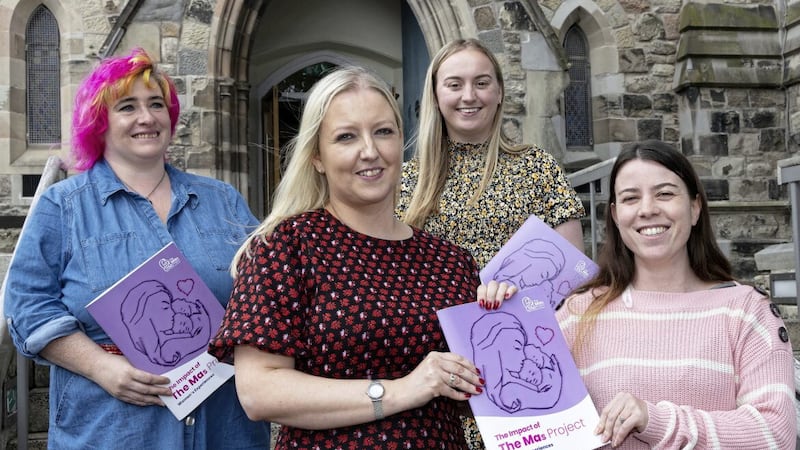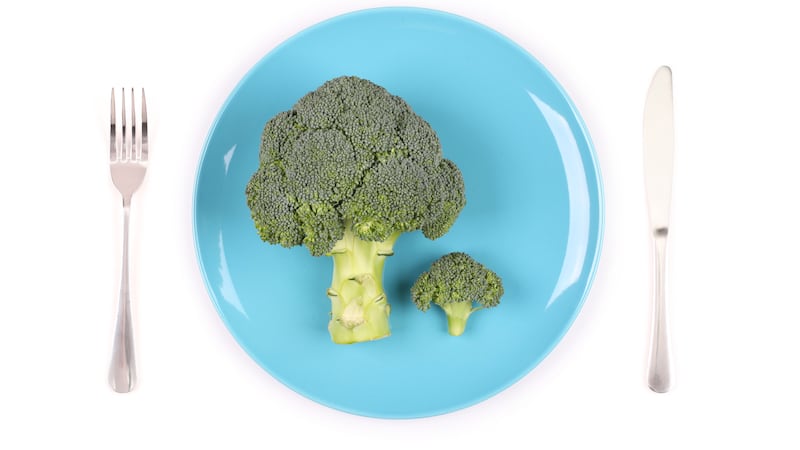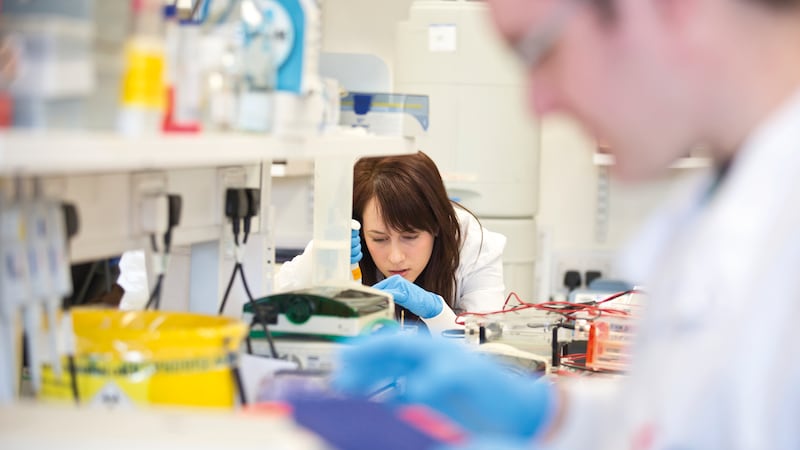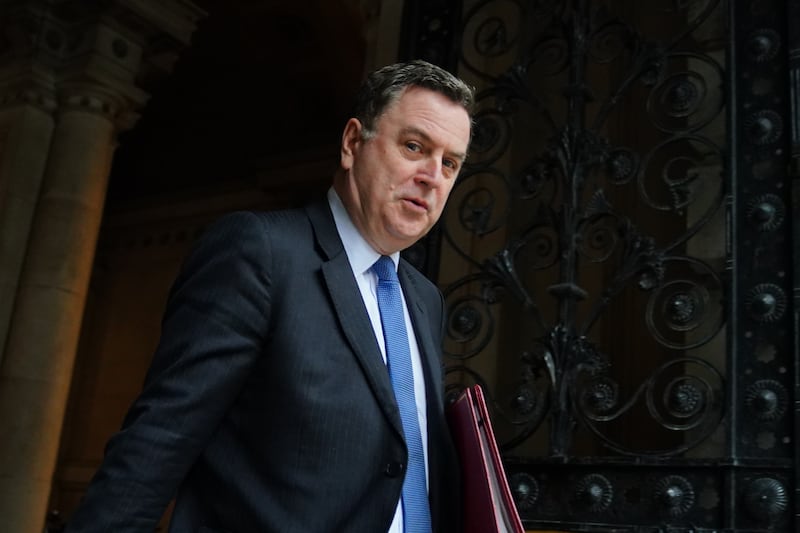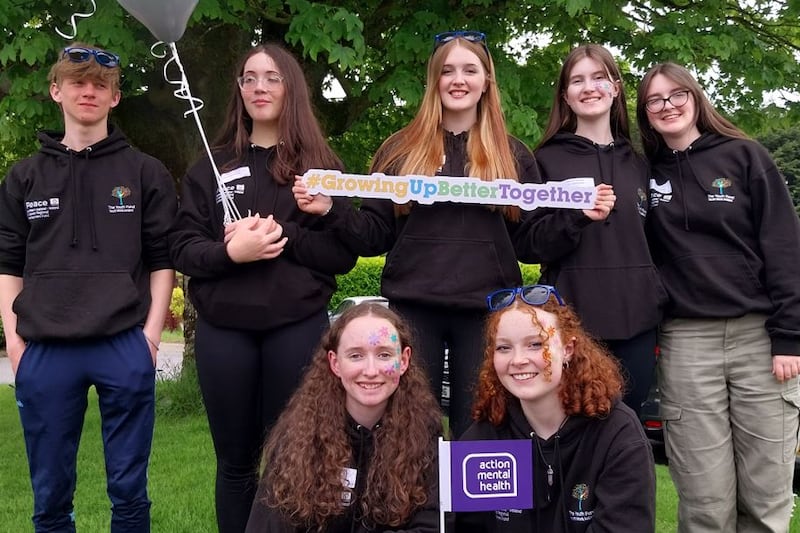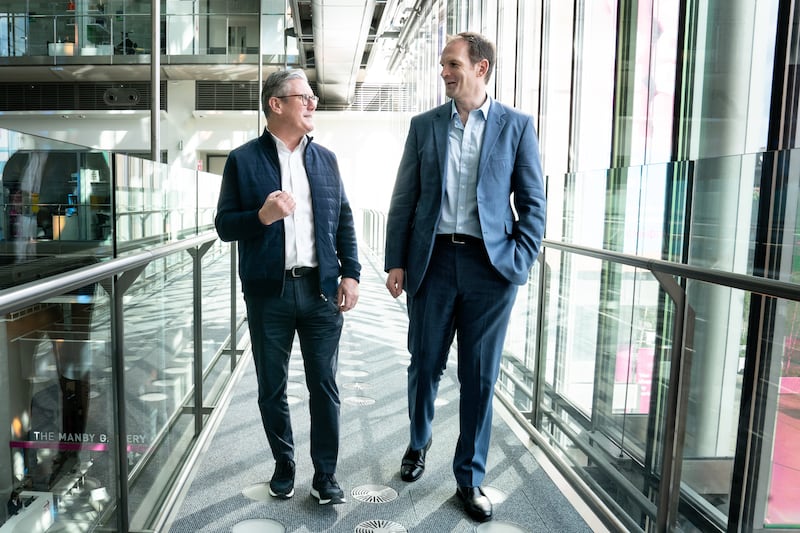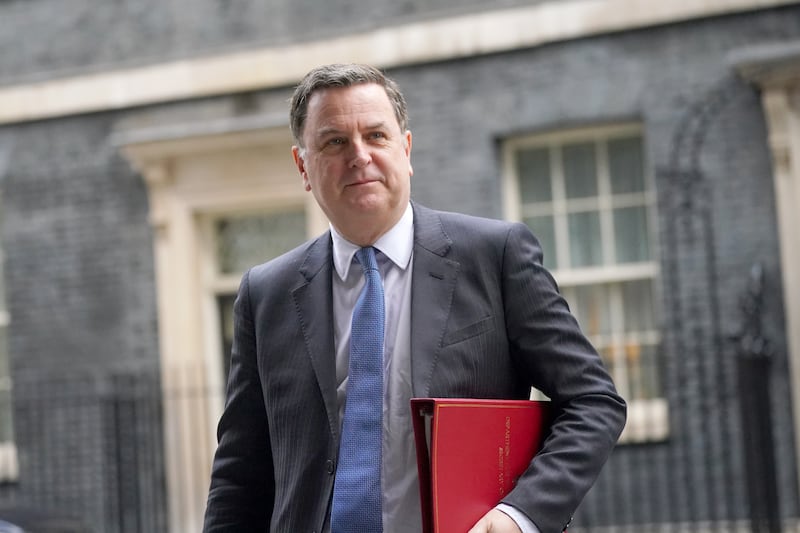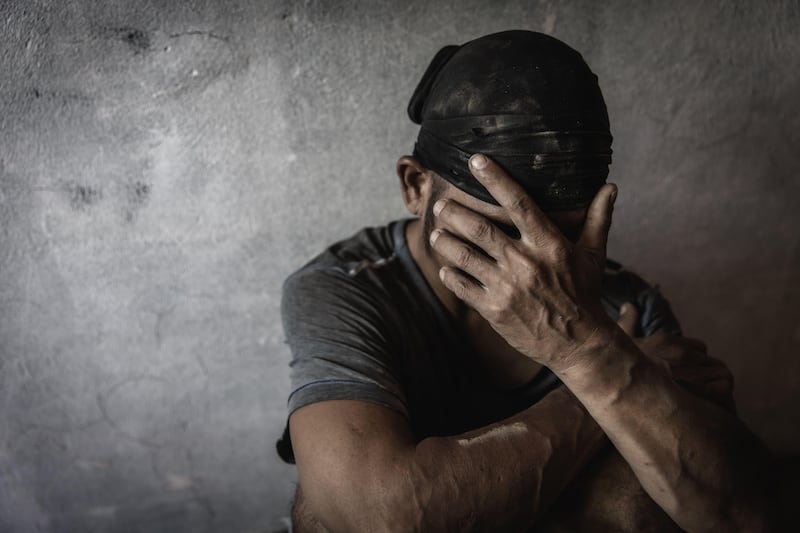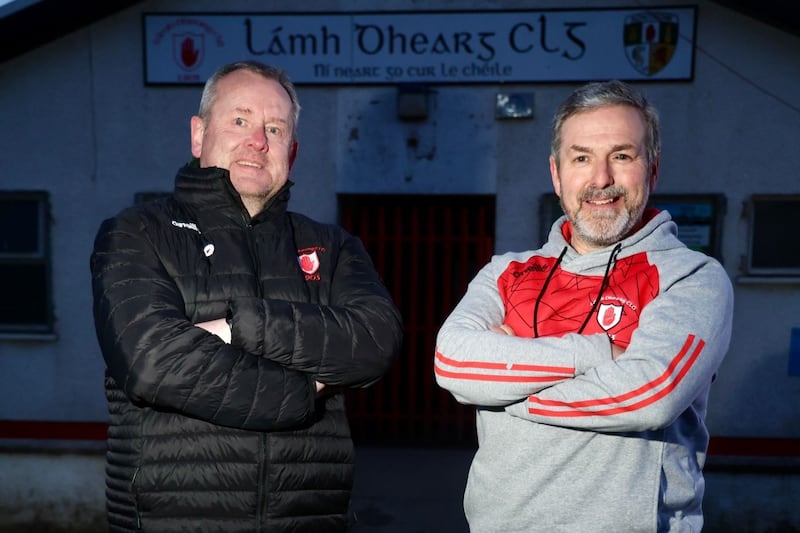"MOTHERHOOD can bring such joy but it can also bring tragedy, a world of turmoil and a host of mental health issues. It is okay to not be okay. But, what do you do when it's not okay? Where do you go? Who can help you?"
These are the compelling words of one of 20 mums – 'the Mas Mums' – who have recounted their experiences of pregnancy and childbirth in a new book as part of the transformative Mas (Maternal Advocacy and Support) project supporting 300 struggling mothers across Northern Ireland.
Led by the Women's Resource and Development Agency (WRDA) in partnership with Aware NI and funded by the National Lottery Community Fund, the early intervention programme has proved so successful that not long after it wrapped up in September, funding was released to allow it to run for another three years.
For the mothers who took part and project coordinator, Clare Anderson, it is a relief that more women will now be supported in the area of perinatal mental health – woefully underfunded in Northern Ireland, which is still the only place in the UK without a dedicated mother and baby mental health unit – but the campaign for long-term funding will continue.
"It is great news that the National Lottery Community Fund will fund the project for another three years, as it will allow us to keep supporting mums and to further develop our campaigning and awareness work," says Clare, who has plans to train other organisations in the Mas model in places where there is limited perinatal mental health peer support provision.
"Up to one in five women can experience poor mental health, but it really could be higher because there is so much stigma surrounding it," she says.
"We believe that the visibility of Mas and the visibility of the peer support groups within the women's centres, increases the likelihood of a woman reaching out for support. Perinatal mental health specialist teams which are now across five health trusts in Northern Ireland provide a great service, but they are really only for women who are severely unwell – that's why the work of Mas is essential because early intervention is key."
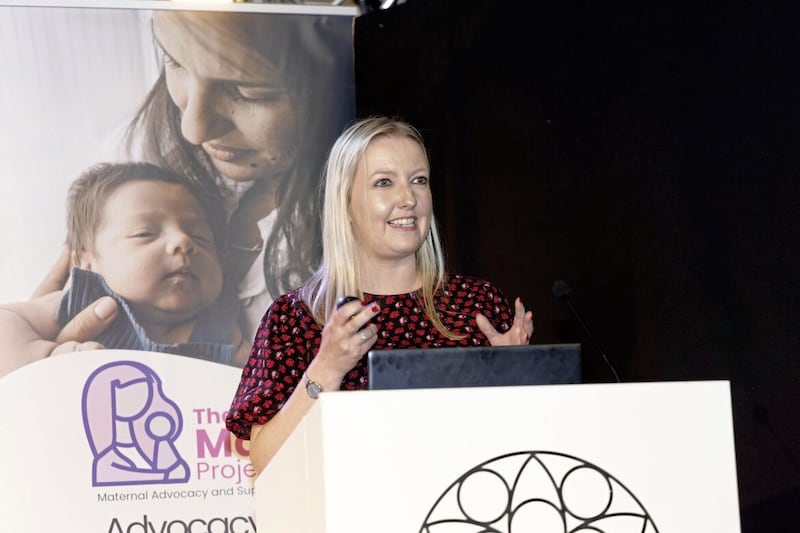
Based in eight women's centres across Belfast, Lisburn and Derry, the project primarily focused on facilitating peer support groups, but participants were also able to access other services at the centres including counselling and wellbeing classes, childcare, adult education, complementary therapies, group leader programmes and workshops on personal development.
They also became involved in campaigning, with the Windsor Women's Centre group in Belfast leading on the campaign to have Translink sign up to the 'Breastfeeding Welcome Here' scheme. A Mas wish list for change was created and a 'Mas Matter' campaign launched at Stormont last year.
The women continue to remain vocal in the mother and baby unit crusade, partnering with Action on Postpartum Psychosis and supported by the Maternal Mental Health Alliance.
The individual impact has been cathartic. Mothers referred to Mas by health professionals, Sure Start teams or family members, suddenly found they were in a group where there was unconditional support and no judgment; a place where they felt safe, valued and respected and where they discovered – many for the first time – that they had a voice and could use it.
"Speaking at events too has been important and has been really well received," says Clare.
"It's about changing attitudes too, improving communication, increasing training and signposting. It is about changing the narrative from what is wrong with you to, actually, what has happened to you. Over the three years things have started to change, but the work continues."
Read more
- Comedian and author Ellie Taylor on why motherhood can be hard on your mental health
- Sandra Bullock calls for motherhood to be properly represented on screen
- UK gender pay gap widens as childcare costs worsen ‘motherhood penalty'
Mothers arrived to the project with all different kinds of traumas that had left them struggling with life, with themselves and with motherhood. In the book, The Impact of the Mas Project, Women's Experiences there are powerful, candid accounts from mothers who have experienced traumatic births; mothers emotionally and physically abused; mothers feeling detached or simply overwhelmed; a mother who suffered multiple miscarriages; a single mother bringing up two small children and a baby who left a "toxic" relationship but who is still traumatised by a lack of love from her own mother; a mother so lost in bereavement that she felt unable to love her unborn child – 20 deeply personal stories filled with sadness but also resilience and hope.
One contributor, Wendynicole McGuinness-Keys (44), an artist from Limavady now living in Belfast, believes that without the peer support from the group her mental health would have "deteriorated rapidly".
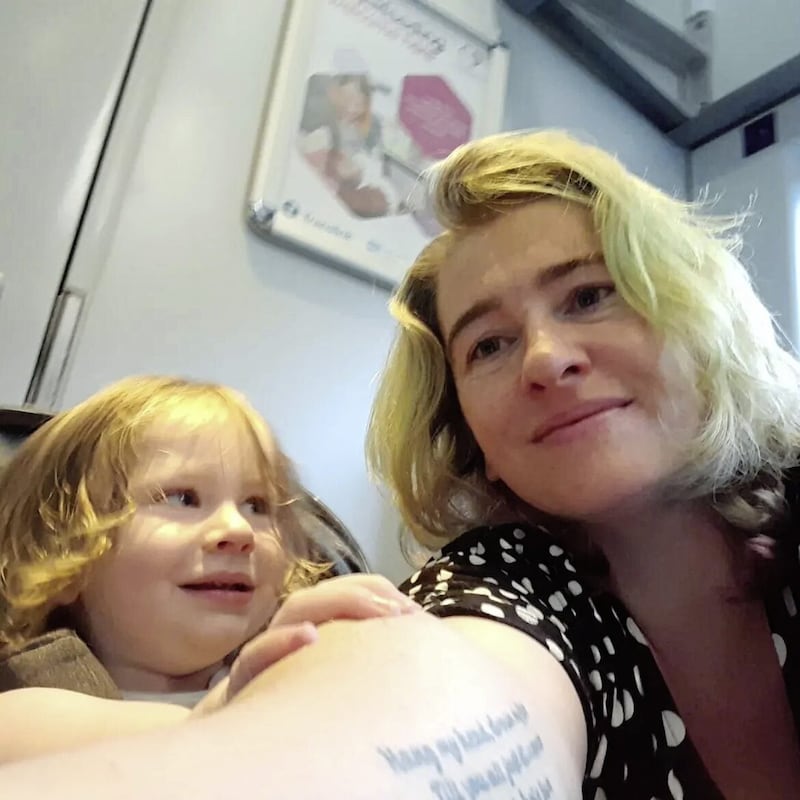
In 2018 she had surgery to remove a tumour and part of her bowel and in 2019 she and her husband lost two babies – one at 12 weeks of pregnancy and the second at 10.
"After that, being pregnant was always going to be a bit of an anxious time for me," she says, "but then it happened slap bang in the middle of the pandemic and feelings of anxiety and isolation grew worse."
Her son, now a healthy three-year-old, was born via emergency C-section at the Royal Jubilee Maternity Hospital after Wendynicole began vomiting green bile, later discovered to be due to an ileus – when the movement of the intestine is interrupted. Doctors discovered a litre of excess fluid outside her womb that was not amniotic fluid and, five days after the birth, she found herself being prepped for more emergency surgery, this time at the RVH to remove a bowel obstruction caused by earlier scar tissue.
All this, you might think, would be enough to set any new mother on edge, but Wendynicole believes the physical trauma was exacerbated by the mental anguish of being separated from her son and the (temporary) interruption of breastfeeding which she successfully managed to re-establish once discharged from hospital.
Now an unapologetic "militant" breastfeeding mum, she says sharing her experiences with the Mas group gave her the reassurance she needed to build herself up again.
"Just to be able to share and know you weren't on your own was literally life-saving," she says.
"We had breastfeeding mums, formula mums, combi-feeding mums and no-one judged anyone. The Mas group offered a shoulder to cry on whatever the concerns or problems and an arm to help you back up when you needed it.
"You know, we were never designed to bring up families on our own, we always had a village of support, and we don't have that in the Western world any more, particularly in the UK. We need that village – and Mas has created it."
